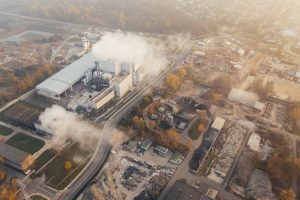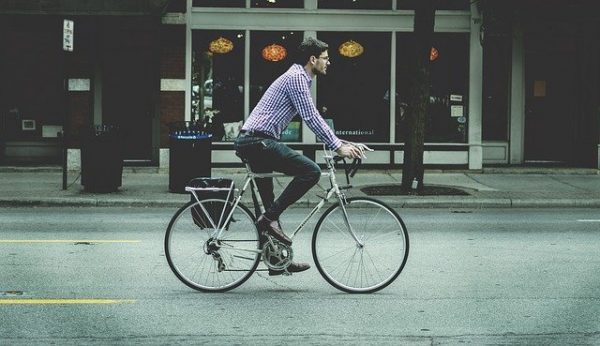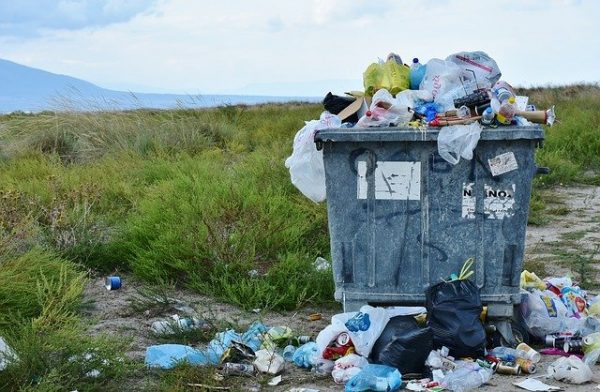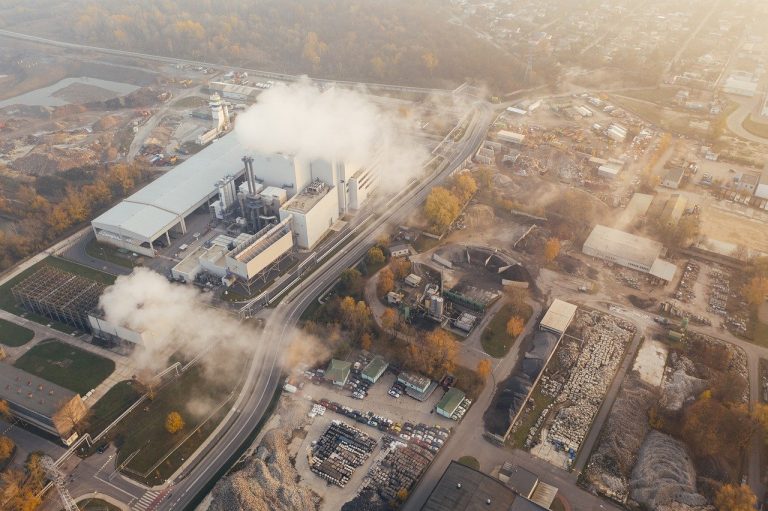Fight against pollution
How can each of us contribute?

In April 2020 during the containment, nitrogen dioxide levels were reduced by 40% and fine particulate matter levels were reduced by 10% according to CREA, preventing 1,230 deaths in France.
This is proof that everyone can do something at their own level to fight pollution! Because if industrial installations are responsible for part of the air, soil and water pollution, households also contribute. Discover our tips for adopting the right behaviors to reduce pollution.
Fighting pollution: it starts with travel!
In France, 40% of trips are less than 2 kilometers long. And taking the car to travel such a short distance is penalizing in terms of air pollution.
A short trip of 500 meters in the city can be made in barely 8 minutes on foot. It is difficult to do better by car between traffic lights, pedestrians, priority buses and sometimes streetcars!

Making daily efforts to limit air pollution is not complicated. It’s just a matter of changing your habits a little by adopting the right reflexes:
- For trips of less than a kilometer, walk. It’s good for the planet and for your health. There’s a reason why doctors recommend 30 minutes of physical activity a day!
- If you need to go outside your neighborhood and travel more than a kilometer or two, don’t hesitate to take your bike or opt for your city’s bike-sharing solution.
- You also have the option of using public transportation such as city buses, streetcars or subways.
- When you have to take the car, group the tasks to be done: the shopping, the parcels to be picked up, the children to be taken to their sports classes… Carpool whenever possible.
Do you live in a place that is not well served by public transportation and cannot use it to get to work? Ask your company about the advantages you can get by riding your bike to work (bike allowance) or by carpooling with one or more colleagues (sustainable mobility package of up to €400).
Fewer vehicles on the road improve air quality, especially during pollution peaks.
Maintain your car to limit its footprint
If you can’t do without a car to get around, you can limit your car’s greenhouse gas emissions by going to the garage regularly.
Changing your oil every year or after 10,000 kilometers will help limit your car’s environmental impact. Don’t forget to change the oil filter with each oil change. Your mechanic can take the opportunity to check the air filter and change it if necessary.
On a daily basis, be sure to check your tire pressure once a month. Under-inflated or over-inflated tires can lead to higher fuel consumption. Drive smoothly and activate your vehicle’s eco-drive mode if it offers it.
If possible, don’t overuse the air conditioning, which uses more fuel, and avoid using a roof box.
Finally, it’s easy to reduce air pollutant emissions and it’s a great way to save money!
Limit energy consumption at home
Reducing air pollution and global warming requires more than just changing your travel habits. You can also make a difference at home.
While road traffic accounts for 32% of greenhouse gas emissions, the residential and tertiary sector is responsible for 41% of these emissions (mainly due to heating) according to Airparif for the Île de France region. These figures are representative of the pollution of most large French cities.
You can act by limiting your heating consumption in winter. A temperature of 18° in the bedrooms is preferable for sleeping and 19-20° is sufficient in the living rooms.
Simple gestures can also reduce energy consumption:
- Turn off electrical appliances when not in use.
- Limit your water consumption by taking a shower instead of a bath. Turn off the water when soaping and brushing your teeth. Invest in a water-saving toilet flush.
- Change your electricity supplier and choose green energy produced in France.
To go further, if you are a homeowner, you can improve your insulation by installing double glazing and by opting for renewable energy (solar panels, geothermal energy, aerothermal energy).
Don’t forget to air your home, even if you live in the city. Indoor air is often more polluted than outdoor air because of toxic products and harmful solvents in paints and furniture.
Take care of your things to keep them longer
Did you know? The manufacturing of electronic devices consumes more energy than their use. 73% of the greenhouse gases produced by an electronic device are emitted during its production (source: GreenIT).
Add to this the programmed obsolescence and the desire to regularly change devices to be at the cutting edge of fashion and technology and imagine the pollution caused by these behaviors…
The solution? Buy less (if possible second hand or at least reconditioned) and take care of your electronic devices. Protect your smartphone against breakage with a case and tempered glass for the screen. Keep your computer updated and sort your files regularly to preserve it.
Clothing
The textile industry is the second most polluting after oil (we have written an article entirely dedicated to this subject). The desire to change clothes regularly, the purchase of poor quality products and the non-recovery of textile wastes are for many reasons.
Here, the same principle as for electronic devices: less purchase (of quality and second-hand clothes) and more maintenance.
Wash your clothes less often (jeans can be worn a good ten times before being put in the machine) and at only 30 or 40°. Protect them against stains and water to keep them longer. Say goodbye to the tumble dryer, which damages textiles and consumes a lot of energy.
Shoes
Do the same with your shoes: opt for quality pieces and buy less. Protect them against stains and water with adapted and environmentally friendly products. Have your shoes repaired at the cobbler’s when they need it (insoles, heels…)
Reduce your waste production and change your eating habits
To participate at your level in sustainable development and fight against pollution, you can also reduce your waste and organic pollutants:
- Use reusable packaging
- Compost your organic food (which represents more than 30% of the waste in a garbage can)
- Avoid food waste by buying less but more often
- Don’t throw away your medications but take them back to the pharmacy where they will be properly recycled
- Choose organic fruits and vegetables that are not packaged: it is better for human health (yours and the producers’) and it limits soil and air pollution
- Eat local and seasonal products that have not been transported by plane or boat
- Limit your meat consumption to two or three times a week (especially beef, the most polluting meat)
- Bring your “lunch box” to the office instead of buying packaged meals.

You can also fight against water pollution at your level!
Water is a precious resource! At home, it is possible to limit the use of chemical products for the household which will avoid spreading these products in nature.
All detergents can be replaced by natural products that are not harmful to the environment: white vinegar, liquid black soap, baking soda, Marseille soap. Banish bleach and soda drain openers from your household routine!
In the bathroom too, water pollution can be limited:
- Use a natural soap instead of a shower gel, an organic or solid shampoo instead of a big box shampoo
- Choose organic or homemade toothpaste
- Opt for a coffee grounds or sugar scrub.
Scrubbing products and some toothpastes contain plastic microbeads that leave with wastewater and are not filtered by sewage treatment plants. These micro-particles can also come from synthetic clothing when you machine wash it.
Choose clothes made of natural fibers and use garment bags.
Human activities are responsible for the majority of pollution and greenhouse gas emissions (carbon dioxide, nitrogen, sulfur) on the planet. However, everyone can reduce air, water and soil pollution by adopting simple daily gestures and changing a few habits. It’s your turn!


